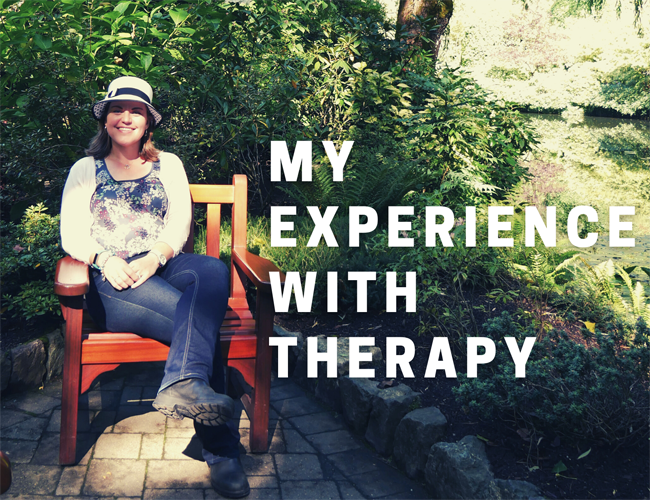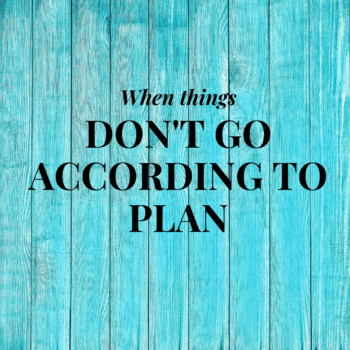
My Experience with Therapy
With World Mental Health Day coming up on October 10, I wanted to share about my experience with therapy in improving our mental health. There are some strange beliefs about therapy. Such as you only see a therapist when you are mentally ill or an emotional mess. I do not believe that this is true. I believe strongly in psychotherapy; it has done wonders for me in my life.
My Biases towards Therapy
I should start by saying that for many years I had a personal bias towards therapy. I believed that only mentally ill people or people seeking attention and drama went to see a therapist. Some of the interactions I had with those going to counseling was that it was only for dysfunctional people. In my pride, I did not believe that could possibly be me.
My Experience with Therapy
My experience with therapy started a few years ago when I hit physical and mental burnout and ended up very sick. Part of my recovery plan was to see a therapist. At that point in my life, I was willing to try anything to get better. I set aside my pride and thought, “Why not? What is the worst thing that can happen? I go and it’s terrible and I never go again.”
My First Therapy Experience
The first experience with therapy was not a positive situation. The therapist that was recommended to me was not a good fit. Her values, the way she carried herself and ran her practice was not creating a safe place for me. She was working out of her home, which was very untidy. I was crammed onto a couch for the session that was surrounded by random objects. Instead of feeling like a professional environment, it felt very chaotic and stressful.
The first thing she told me was that she had double booked my appointment. My hour appointment was reduced to 20 minutes. During the session she barely listened to what I was saying. She told me to do some breathing exercises and to stop worrying. It left me feeling unseen, dismissed and her advice was in no way helpful. It was a horrible experience for me.
Not Giving Up
I decided not to give up. There were things I wanted to learn and talk about, so I was willing to give therapy another try. I was recommended a different therapist and my experience with her was much more positive. The first thing she did when we met was to give me a hug. I felt so safe and reassured being around such a loving and compassionate person.
She is a great listener and a wise and encouraging individual. Even though I was struggling and I knew I was, she was my cheerleader. She always tells me how good I am doing and how important the things I was learning about myself are. I feel seen and understood in our sessions and feel like great mental work is done during our appointments.
Therapy for me has always been about working through trauma. Figuring out how to let go and taking important life lessons away from the situation. Through these sessions I have gained a lot of awareness which has led me to being much healthier in many areas of my life.
Why Would You Visit a Therapist?
If you consider yourself a high functioning individual, why would you visit a therapist? We all have blind spots in our lives that we are not aware of. By meeting with a therapist, you can recognize and remove these blind spots.
I know the joke is that they always talk about your childhood, but it is actually an important place to start. Therapy is about understanding your core beliefs, and what you believe about yourself and others. The way you were raised influences the way you view the world and react to things. This can be so ingrained in who you are that you are not even aware that some of these habits and beliefs may not be healthy or helpful for how you want to live. By visiting a therapist, you are starting the journey of self-discovery. By coming to understand how you look at the world and why you see things from a certain perspective.
The Progress of Your Mental Health
About a year before I got sick, I was taking a lot of leadership courses through the University of Calgary as part of the Emerging Leaders Certification. What was interesting about the courses were that a high percentage of the courses were about communication and relationships. I took courses on work and life satisfaction, how to deal with conflict, stress in the workplace, emotional intelligence, among others. They were great courses. I think deep down I knew I needed help in some of these areas, but I didn’t even know where to start.
Leadership Courses
When I look back at it, these courses are mental health courses. I feel like there is an understanding in the corporate world that if you want efficient workers, they need to work effectively with others. These courses have information that you would receive from a therapy session, though less targeted. What I find interesting is that with the stigma around mental health, people who would never visit a therapist will go to a leadership conference and take courses about mental health.
Navigating Life
Going to a therapist helps me work through things that I cannot figure out on my own. Why does a particular situation bug me? Why do I feel like I do not have the skills to navigate a tense situation? These are the things that I talk with my counselor about.
When I work with my therapist, she takes notes and gets to the heart of what I am saying. We talk about the root cause to the situation that I am struggling with. My experience with therapy is that of being seen, being listened to, and discovering new ideas in moments of enlightenment. I believe that going to a therapist helps us learn about ourselves. It helps us to become higher functioning and helps us walk in confidence through life.
Why Not Just Talk to a Friend?
Being a churchgoer, people often say, “Why don’t you just talk to a pastor or a good friend?” For one, as amazing as the pastors I have had in the past have been, they do not necessarily have the skills sets for dealing with mental health issues.
A friend or pastor may have great skills and wisdom, but they may not have the knowledge to lead you through some of the difficult conversations the way a therapist can. I think they can provide help, provide encouragement, but it is not the same thing as therapy. It is like visiting with an older friend that might give you advice. It is good, but it is not the same as a counselor or therapist.
I believe that even if a pastor or a friend give us good advice. But meeting with a therapist we treat it differently. I think we take advice that we pay for more seriously. The therapist is there to be honest with you, so they can speak more truthfully than a friend may be able to. Where friendship and pastoral support is good, they are still in a personal relationship with you
A therapist has a personal relationship with you, but their job first and foremost is to help you in an honest way. I do not always agree with what my therapist tells me. Usually if I think about it, weeks later I realize that she is right. It is a different relationship, and with that relationship, it has a way to powerfully change us.
How About You?
Have you ever been to a therapist or do you have a bias towards seeing one? I would love to hear what your experience with therapy has been and what you have learned from the situation. Perhaps this article will encourage you to start a relationship with a therapist.
I have encouraged a lot of people over the years to go to therapy, and it has always been a help to them. My hope for you during Mental Illness Awareness Week is that as you evaluate your mental health, that you would consider therapy. It is an opportunity to make your life so much better.





